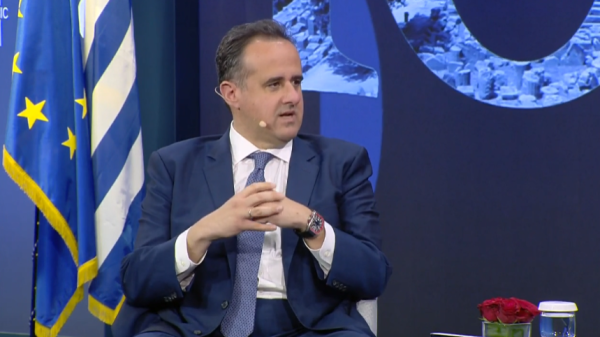
The 2023 annual Greek Trade Report indicates that the effects of the decade-long economic crisis and austerity measures still burden Greek households. Despite recent income and consumer spending growth, the gap from pre-crisis levels in 2008 remains substantial.
Between 2008 and 2022, total monthly expenditure plummeted by roughly 24.4%, primarily due to internal devaluation policies during economic and subsequent crises like healthcare and energy. Despite a 2019 uptick, consumer spending dropped below 2018 levels in 2020 due to the pandemic.
While there was a 6.6% spending increase in 2021, it failed to fully recover from 2020 losses, remaining below 2019 and 2018 levels. Conversely, 2022 saw a 12.72% surge, balanced against 3.5% inflation in 2023.
Household spending on food and beverages rose significantly over the years. In 2008, food accounted for 16.4% of total spending, reaching a 3.7% increase by 2018. During the pandemic, food spending peaked at 23.1% in 2020 and nearly 22% in 2021, while flexible expenses like clothing and appliances decreased.
In 2008, 8.22% of monthly expenses went to clothes and shoes, nearly halving to 4.83% by 2022. Similarly, household appliance spending dropped from 0.79% in 2008 to 0.59% in 2021, rising slightly to 0.62% in 2022.
The successive crises widened inequalities in Greek society and hampered retail businesses, particularly smaller ones, leaving them stagnant and with limited growth prospects.
Source: tovima.com
Latest News

Greece Eyes New Tourist Markets, Says Minister at Delphi Forum
The Greek Tourism Ministry is aiming to tap into new markets such as India, the UAE, China, as well as increase its share in the US West Coast

Delphi Economic Forum X 2025 – FT Journalist Alec Russell Talks Ukraine, Populism and Trump
Alec Russell, journalist and head of foreign correspondents at the Financial Times, described Trump as a “master of unpredictability.”

Von der Leyen Welcomes Trump’s Tariff Pause
European Commission President Ursula von der Leyen on Thursday welcomed U.S. President Donald Trump’s unexpected decision to pause sweeping tariffs for most countries, calling it “an important step towards stabilizing the global economy.”

Shipping’s Evolving Regulatory Landscape
Regulatory tools must remain unbiased to stay agnostic in terms of energy, enabling continued innovation and investment in the most efficient solutions for the maritime sector.

Alter Ego Media Group: 2024 was a year of impressive financial growth
The financial results for the year ended on 31.12.2024 of Alter Ego Media, the country's major media group, demonstrate strong growth across all financial indicators.

EU Retaliates, Approves Tariffs in Trump Trade Clash
The European Union has approved its first round of retaliatory tariffs in response to U.S. President Donald Trump’s sweeping trade duties.

10th Delphi Economic Forum – ‘We are in a 2nd Cold War’: Professor Platias
“We are in a new Cold War,” the professor pointed out, claiming the two poles were the United States and China.

Deputy of Tempi Train Crash Committee Resigns
Christos Papadimitriou, the deputy chairman of the Hellenic Rail Accident Investigation Agency (EOADASAM), forwarded his letter of resignation to the deputy minister of transport on Wednesday.

New Democracy Modifies Comms Team in Wake of Tempi Backlash
Former Deputy Energy Minister Alexandra Sdoukou has been appointed new spokesperson for New Democracy.

Chevron Cleared to Explore Hydrocarbons South of Crete
This step marks a significant development in Greece’s ongoing efforts to tap into its underexplored energy reserves.





























![Χρυσός: Ξανά κοντά σε νέα ρεκόρ [Γράφημα]](https://www.ot.gr/wp-content/uploads/2024/02/gold-8218390_1280-600x400.jpg)











 Αριθμός Πιστοποίησης
Αριθμός Πιστοποίησης